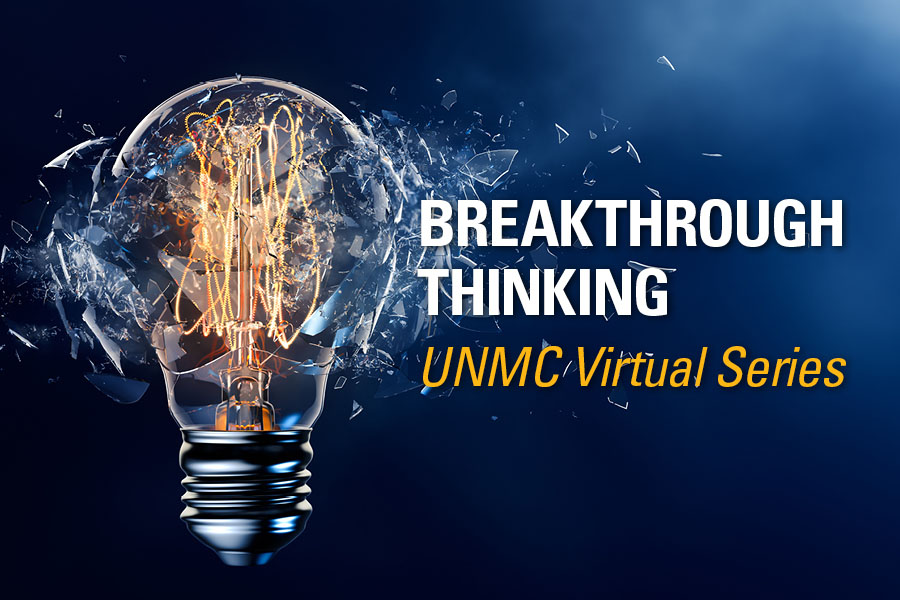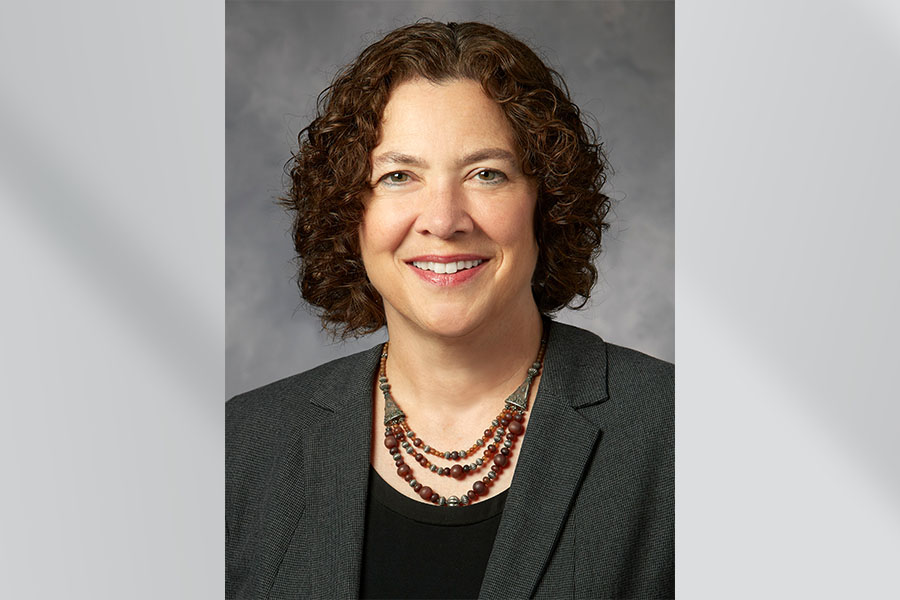In 1951, Stanford University founded the Stanford Research Park on 700 acres to bring industry in closer contact with the university.
In the decades since, the park has become home to cutting-edge businesses and a destination for entrepreneurial minds, said Karin Immergluck, PhD, associate vice provost leading the Office of Technology Licensing at Stanford University.
“Today, the research park is as robust and vital to our ecosystem as ever,” Dr. Immergluck told UNMC faculty, staff and students. Her presentation on how to grow an entrepreneurial ecosystem was the latest in UNMC’s Breakthrough Thinking sessions, which are designed to challenge and inspire out-of-the-box thinking.

In 2023 alone, Dr. Immergluck said, Stanford’s Office of Technology Licensing totaled 558 new technologies, $59 million in revenue and 26 startup companies.
The research park has a mix of well-known companies – Google, Tesla, SAP and Hewlett-Packard – as well as law firms, banks, non-profits and research institutes.
“It’s a complete infrastructure within itself,” she said. “Startups rent space and can interact with large companies but have the other infrastructure needs right there in the park.”
The Office of Technology Licensing, which promotes the transfer of Stanford technology for society’s use and benefit, was founded in the 1970s. Generating unrestricted income to support research and education always has been a secondary focus, Dr. Immergluck said. Since then, the Palo Alto area – which lies in the heart of Silicon Valley – has become a hotbed for venture capitalists and entrepreneurs.
Bringing industry close to the university pays off, she said, because students see beyond theoretical applications and companies learn about cutting-edge research and meet future employees.
During Dr. Immergluck’s discussion of Stanford’s Office of Technology Licensing, she emphasized:
- Maintaining good relationships with investors.
- Aiming for the broadest utilization and maximizing “shots on goal.”
- Not cherry-picking which technologies will be winners. She noted how Stanford initially marketed Google’s page-rank algorithm to more than 100 companies with minimal interest.
- Marketing inventions, which then spark new research collaborations.
- Not focusing on dollars to measure success. Instead, she said, the Office of Technology Licensing focuses on getting technologies licensed.
- Getting to know local investors before someone has an idea. “Once you get to know them, their door will be wider open when you have an opportunity,” she said.
In closing, she presented a challenge.
“What will each of you do to grow the UNMC entrepreneurial ecosystem?”
